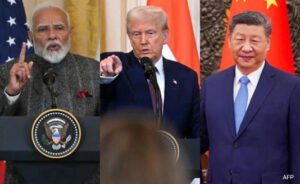
As tensions spiral between Israel and Iran, global security experts are sounding alarms, warning that the high-stakes conflict has entered a perilous phase with worldwide implications.
Military Escalation and Global Fallout
Israel’s Operation Rising Lion, launched on June 13, has triggered a wave of strikes across Iran—hitting nuclear sites and military installations, including Natanz and Fordow, and reportedly killing over 200 individuals.
Iran has retaliated with ballistic and hypersonic missiles targeting Israeli cities, including Tel Aviv, leading to civilian and military casualties on both sides.
Observers warn a wider war could draw in American, British, Russian, and even Chinese involvement—creating a conflict unlike any seen in recent times.

Experts Sound the Alarm
- Security analysts say this constitutes an existential escalation. “This is a very dangerous moment, and Netanyahu’s decisions in the coming hours … have the potential to impact significantly on regional and world peace,” noted Tom Clonan.
- Geopolitical commentators warn of ripple effects across the globe—from disruptions in Strait of Hormuz shipping and energy prices to enlargement of cyber and satellite warfare.
- U.S. voices such as Senator Ted Cruz have cautioned that a nuclear-armed Iran could unleash catastrophic devastation, possibly involving “mushroom clouds” over major cities.
International Response and Regional Stakes
- The UN Secretary-General has urged “utmost restraint,” stressing the crisis could evolve into global conflict.
- Russia has strongly warned the U.S. against direct intervention, calling the situation “critical” and cautioning of destabilization.
- European leaders, including Macron, Merz, and Valtonen, have advised restraint and emphasized the importance of diplomatic de-escalation.
- The cyber front is equally volatile, with cyber-security experts warning of spillover attacks targeting U.S. infrastructure linked to Iran–Israel digital hostilities.
Economic & Humanitarian Toll
- Global oil markets are rattled, with fears growing that a full-scale war could choke off supplies through the Strait of Hormuz.
- Humanitarian consequences are stark: evacuation of foreign nationals, disruption of civilian life in Tehran and Jerusalem, mounting civilian casualties, and displacement across the region.
The Call for Diplomacy
Experts, diplomats, and international bodies are united in urging both nations to halt military action and return to dialogue. Options being explored include:
- Pressure via the U.N. Security Council for ceasefires and humanitarian corridors.
- Diplomatic mediation involving major powers—especially the U.S., EU, Russia, China—and potential neutral parties like India.
- Use of strategic frameworks like the Abraham Accords to defuse regional aggression .
Bottom Line:
This Israel–Iran conflict is not just another Middle East flare‑up—it’s a high-risk confrontation with global ripple effects—militarily, economically, digitally, and geopolitically. Experts emphasize it is a “very dangerous moment” for world security—and the window for diplomacy to avert catastrophe is narrowing fast.
